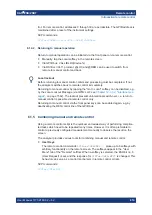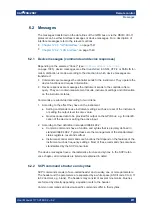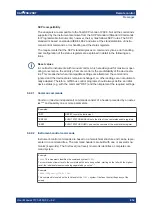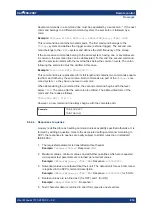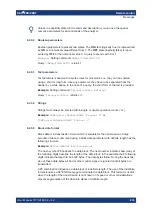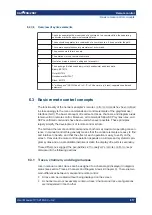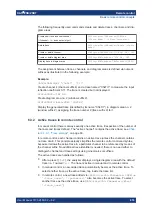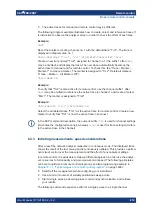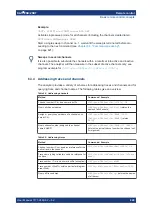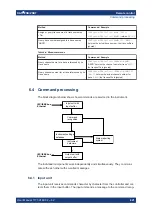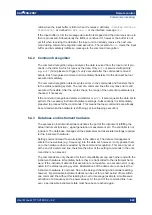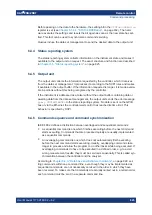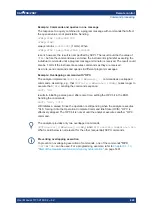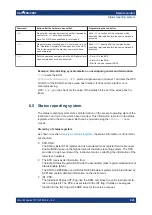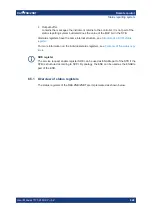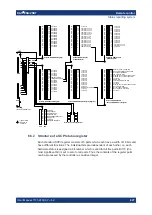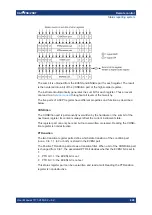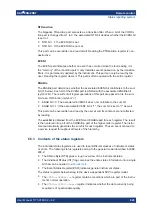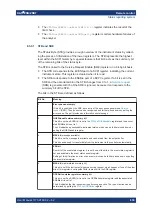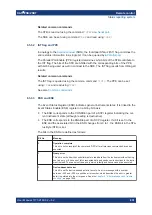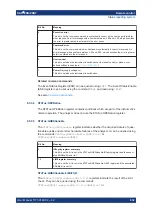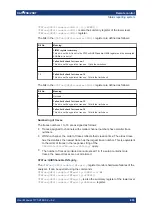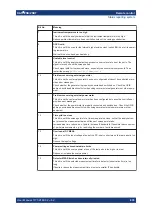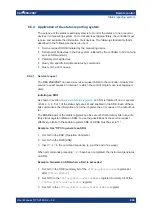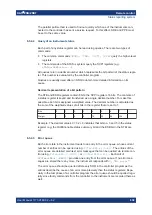
Remote control
R&S
®
ZNB/ZNBT
824
User Manual 1173.9163.02 ─ 62
Example: Commands and queries in one message
The response to a query combined in a program message with commands that affect
the queried value is not predictable. Sending
:FREQ:STAR 1GHZ;SPAN 100
:FREQ:STAR?
always returns
1000000000
(1 GHz). When:
:FREQ:STAR 1GHz;STAR?;SPAN 1000000
is sent, however, the result is not specified by SCPI. The result could be the value of
STARt
before the command was sent since the instrument might defer executing the
individual commands until a program message terminator is received. The result could
also be 1 GHz if the instrument executes commands as they are received.
As a rule, send commands and queries in different program messages.
Example: Overlapping command with *OPC
The analyzer implements
INITiate[:IMMediate]...
commands as overlapped
commands. Assuming, e.g., that
INITiate[:IMMediate][:DUMMy]
takes longer to
execute than
*OPC
, sending the command sequence:
INIT; *OPC.
results in initiating a sweep and, after some time, setting the OPC bit in the ESR.
Sending the commands:
INIT; *OPC; *CLS
still initiates a sweep. Since the operation is still pending when the analyzer executes
*CLS, forcing it into the Operation Complete Command Idle State (OCIS), *OPC is
effectively skipped. The OPC bit is not set until the analyzer executes another *OPC
command.
The analyzer provides only two overlapped commands,
INITiate<Ch>[:IMMediate][:DUMMy]
and
INITiate<Ch>[:IMMediate]:ALL
.
What is said below is not relevant for the other (sequential) SCPI commands.
Preventing overlapping execution
To prevent an overlapping execution of commands, one of the commands
*OPC
,
*OPC?
or
*WAI
can be used. For a programming example, refer to
"Start of the measurement and command synchronization"
Command processing

